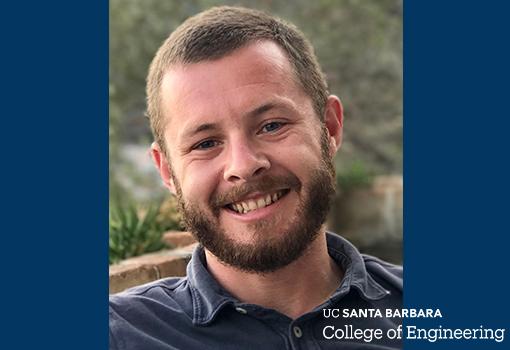Ryan Stowers Receives Young Investigator Award

By Andrew Masuda
Almost all living cells and tissues exert and experience physical forces that influence their biological function. Understanding how those properties, such as stiffness, affect and control cells and tissues is the driving force behind mechanobiology, a burgeoning field that incorporates biology, engineering, and physics.
Mechanobiology seeks to determine how cells convert mechanical signals into biological signals that affect their cellular behavior, including how they develop, divide, and differentiate, and even their role in disease progression. This approach has become increasingly relevant in cancer and stem cell research as scientists such as UC Santa Barbara researcher Ryan Stowers, an assistant professor in the Mechanical Engineering Department, investigate the impact that mechanical forces have on tumors and living cells.
Stowers’s research focuses on how cells interact with and are influenced by their surrounding environment. His lab creates hydrogels, which are three-dimensional (3D) networks of hydrophilic polymers that can swell and hold a large amount of water while still maintaining their structure. Because of their large water content, softness, and flexibility, hydrogels closely resemble living tissue, opening up many opportunities for applications in biomedical areas. Now, they have a wide range of uses, from contact lenses and wound dressings, to drug delivery and improving or replacing biological tissue.
Stowers’s group is particularly interested in developing and employing novel 3D hydrogels for applications in cancer and stem cell research, and to generate organoids, which are 3D cell cultures that incorporate key features of organs such as livers or intestines.
“We create synthetic cellular environments in the lab by using three-dimensional hydrogels where we have precise control over one or more particular features we are interested in,” said Stowers. “We can then vary those parameters and assess how the cells respond.”
For his research efforts to better understand the developmental processes, Stowers has been awarded a Young Investigator Award by the journal Cells Tissues Organs (CTO). He was one of seven scientists selected from around the world for the inaugural honor.
“I am grateful to receive this award from journal editors as recognition for my accomplishments in the field,” said Stowers, who joined the UCSB faculty in fall 2019.
Each award winner was asked to submit a review article or research manuscript to be featured in a special Young Investigator Issue of CTO. Stowers plans to submit a review article covering recent advances in biomaterials engineering to guide stem cell outcomes.
“One example of an advance is how lasers, light-triggered chemical reactions, and 3D biomaterials are used to generate functional human organoids or microtissues,” said Stowers. “Review articles also present a great opportunity for authors to outline their vision for research directions in the field and to identify challenges the community should work to overcome.”
Within the past year, Stowers’s research has appeared in Scientific Reports, Biomaterials, Nature Communications, and as the cover article in Nature Biomedical Engineering. He sees the award and publication in CTO as a great opportunity for a junior faculty member.
“A primary objective for early-career faculty is to establish an independent research program and be recognized as a leader in your particular field,” he explained. “This type of exposure is not only a tremendous honor, but also a great way to differentiate myself and my lab from the labs I’ve trained in and from the mentors who trained me.”
The Young Investigator Issue will be released in 2021. Founded in 1945, CTO aims to bridge the gap between cell biology and developmental biology and the emerging fields of regenerative medicine, which includes stem cell biology, tissue engineering, artificial organs, and transplantation biology.